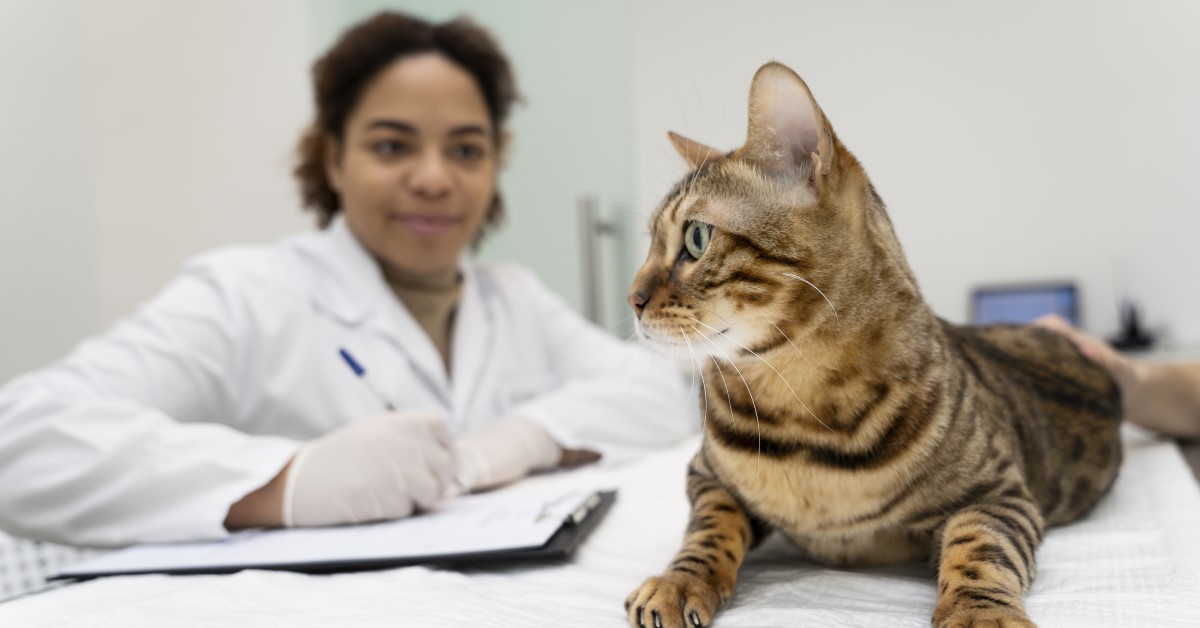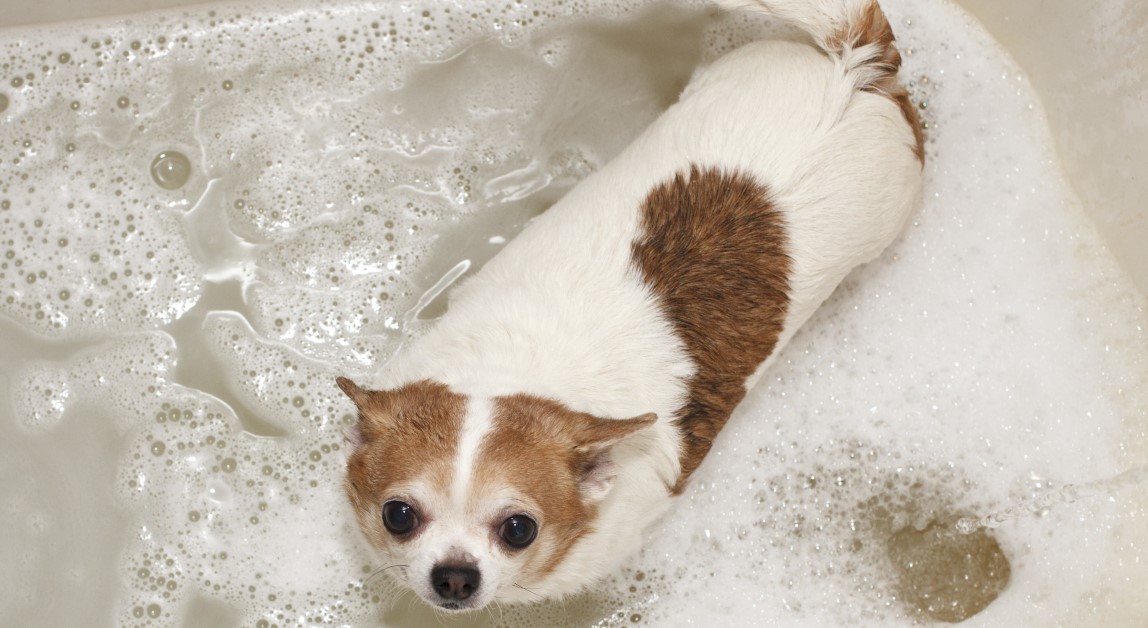Kidney Disease in Cats: What to Know
Kidney disease in cats requires a swift diagnosis and routine vet care for the best prognosis.

Approximately 1 to 3 percent of cats will develop chronic kidney disease (CKD) in their lifetime, according to the International Renal Interest Society (IRiS). The prevalence of kidney disease also increases with age, with this condition affecting up to 80 percent of the senior cat population.
The kidneys perform many important functions. They produce hormones, manage blood pressure, remove waste from the blood, and stimulate the bone marrow to generate red blood cells. They also help regulate the levels of certain essential minerals, conserve water in the body, and produce urine.
Without treatment, kidney disease can lead to a wide range of health problems. Although there is currently no cure for chronic kidney disease in cats, you can boost the quality and length of your pet’s life through early diagnosis and proper care. Here’s what you should know about feline kidney disease.
What is Kidney Disease in Cats?
Kidney disease is the gradual loss of kidney function. The kidneys are responsible for filtering waste and excess fluids from the blood, which are then removed from the body through urine. With advanced chronic kidney disease, dangerous levels of fluid, waste, and electrolytes can build up in the body. Cats with kidney disease may also develop anemia or lack of red blood cells.
There are two main types of kidney disease in cats:
- Acute Renal Failure – This type of kidney disease develops suddenly over a few days or weeks. It can occur in cats of any age and is usually the result of trauma, such as a burst bladder or broken pelvis, or poisons from environmental factors like pesticides or antifreeze. Acute renal failure can also develop from an infection in the kidneys, blockages that alter the flow of blood to the kidneys, heart failure with low blood pressure, or shock from the rapid loss of blood.
- Chronic Kidney Disease – When diagnosed early, acute renal failure can often be reversed. However, chronic kidney problems can be more difficult to diagnose and treat. Chronic kidney disease typically affects middle-aged and older cats and develops over many months or years. The exact causes of chronic kidney disease are not yet clear but may be related to kidney infections or blockages that wear down kidney function. Other conditions, such as high blood pressure or advanced dental disease, can also cause feline kidney disease.
What are the Signs of Kidney Disease?
It is not always easy to catch the signs of kidney disease in its earliest stage. Your veterinarian is more likely to detect early-stage kidney disease through routine wellness checks. A urinalysis (urine sample) can show high protein levels that could indicate a kidney problem. High blood pressure can also be a red flag that something is amiss.
Cats who develop kidney disease will typically show some or all of the following symptoms:
- Extreme thirst (this typically means that your cat is trying to replace the fluid they lost through urinating)
- Frequent urination (occuring because cats with kidney disease are no longer able to store water; you may also find your cat urinating outside the litter box)
- Weight loss (this can be caused by a decrease in appetite)
- Constipation
- Dry Coat
- Brownish-colored tongue
- Weakness and overall indifference
- Vomiting
- Bloody or cloudy urine
- Diarrhea
- Mouth ulcers (these often develop on the tongue or gums)
- Bacterial infections (infections of the kidney or bladder may develop more easily in the diluted urine due to failing kidneys)
How Is Kidney Disease in Cats Treated?
While there is no cure for chronic kidney disease in cats, treatment can help improve and prolong your pet’s life. The goal of treatment is to reduce the buildup of waste products in the bloodstream, maintain sufficient hydration, support appropriate nutrition, address disturbances in electrolyte concentration, and control blood pressure.
First, your vet may discuss dietary modifications. Studies have shown that therapeutic diets that are restricted in sodium, phosphorus, and protein content and high in fiber, antioxidants, and water-soluble vitamins, may help prolong the life of cats with CKD. Some cats may resist a change in diet, and going even relatively short periods without food can cause your cat to develop serious health problems. Therefore, it is important to transition your cat to a therapeutic diet gradually.
Next, pet owners must focus on controlling hypertension, addressing anemia, and decreasing urinary protein loss. Hypertension can usually be controlled with oral medication, while urinary protein loss is typically treated with angiotensin-converting enzyme inhibitors. Cats with anemia may be treated with replacement therapy with erythropoietin which helps stimulate red blood production. Cats with kidney disease often respond well to antibiotics, which can help manage frequent bladder infections.
What Is the Prognosis of Feline Kidney Disease?
The prognosis for kidney disease in cats can vary considerably depending on a range of factors, such as how soon the condition was identified, the treatment plan, and the pet owner’s ability to perform follow-up care.
Treatment is encouraged in most situations, as cats with kidney disease can maintain a good quality of life for up to four years after a diagnosis. Cats with advanced kidney disease will often succumb to their condition within months. However, despite these averages, the survival time of any cat can be impossible to predict.
Caring for Cats with Kidney Disease
Finding out that your cat has kidney disease can be devastating. Managing this condition can also be daunting as it requires a significant amount of the pet owner’s time and money. While no one is ever prepared for this diagnosis, good communication between pet owners and veterinary staff concerning treatment options can help ensure that the affected pets maintain a good quality of life.
Ready to start saving money on pet wellness care?
Then take a look at Mint Wellness, the pet wellness plan that provides fast reimbursement on routine pet care. Save on vaccinations, wellness exams, preventatives, dental, and more!
Learn More


